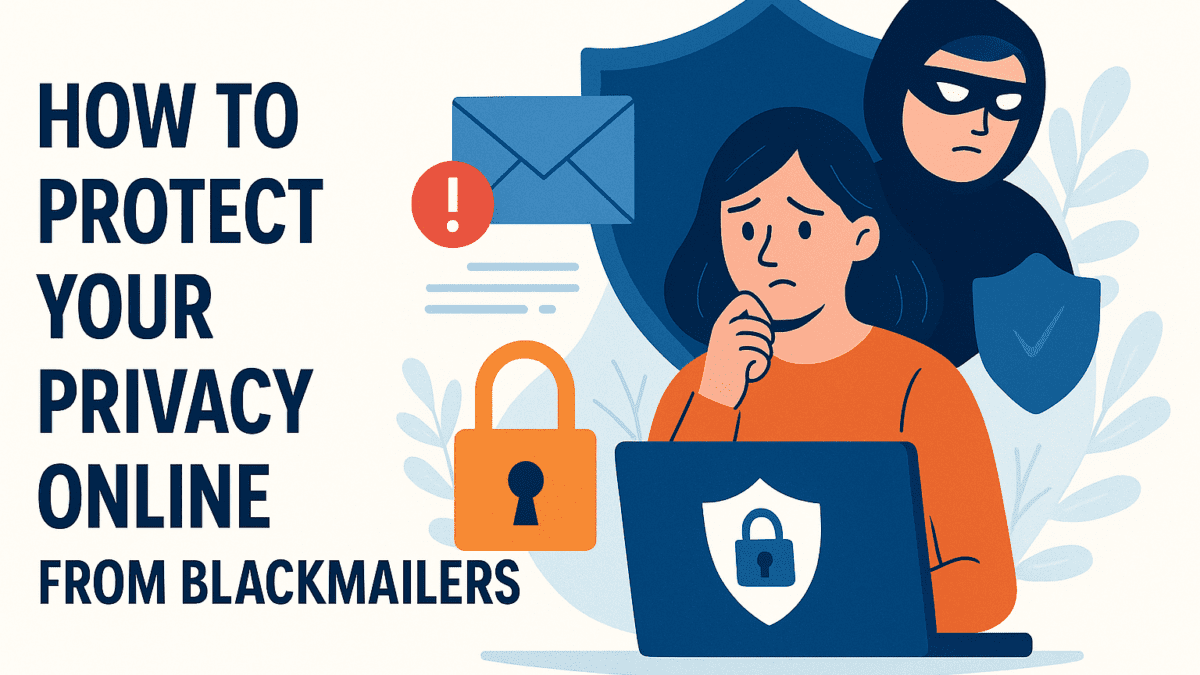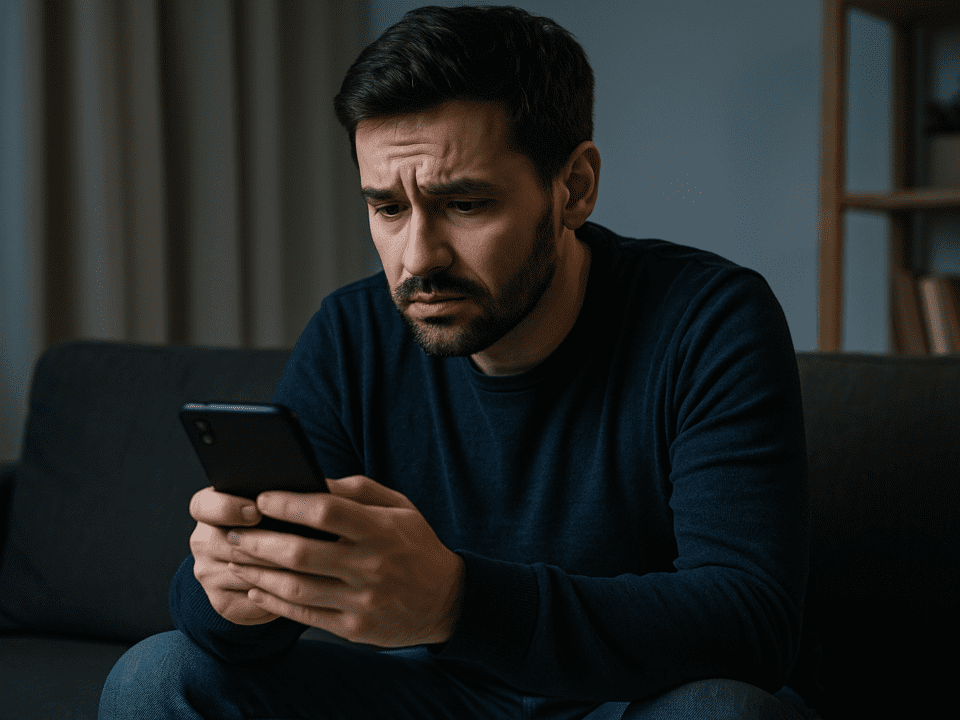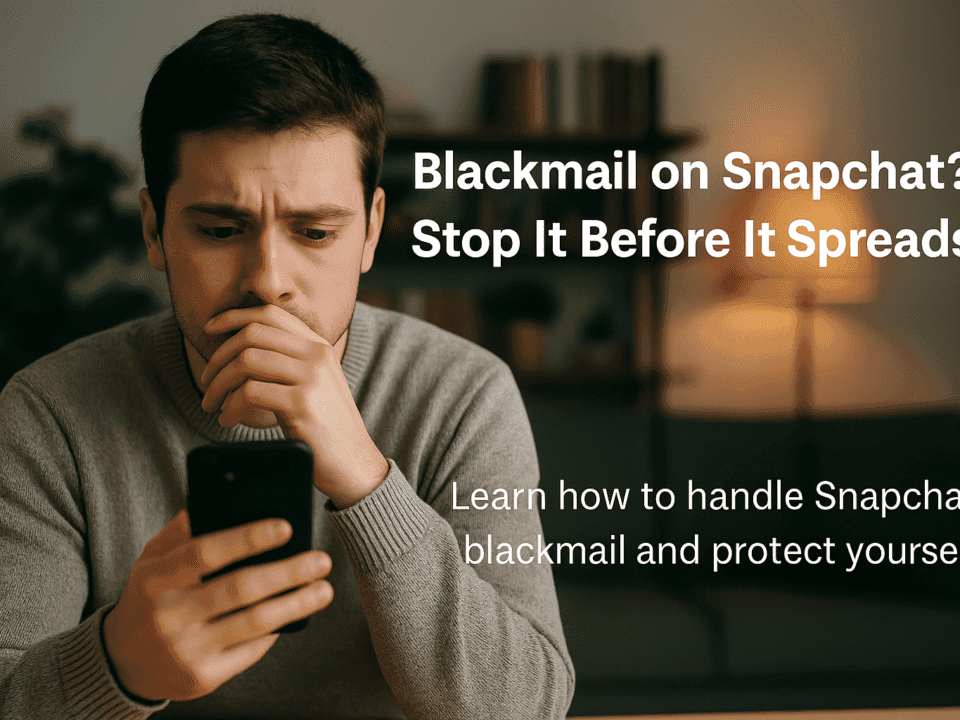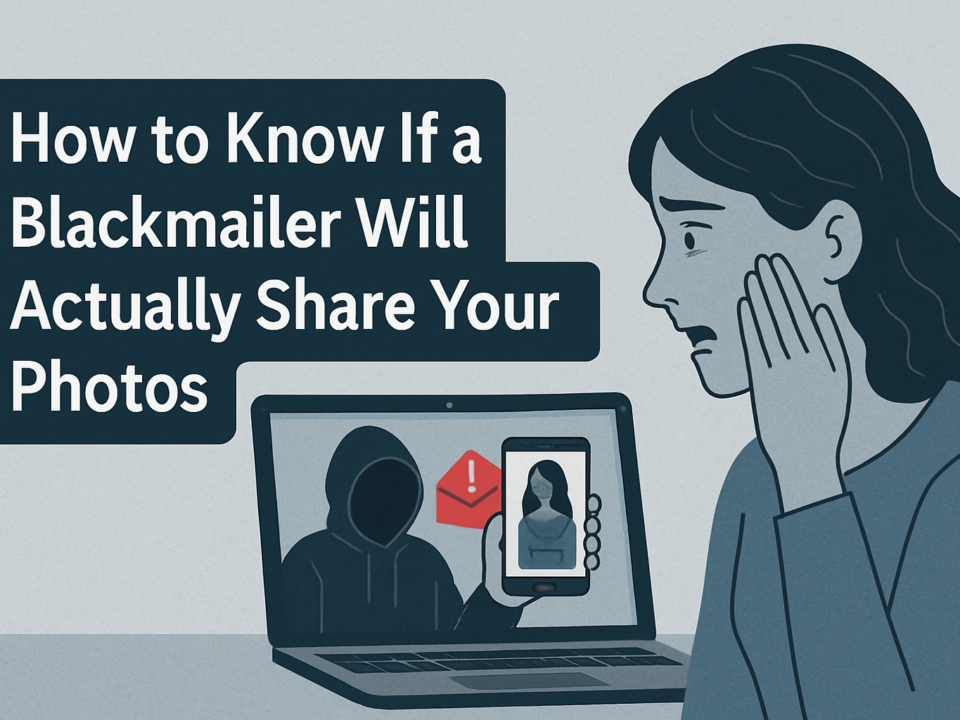
Caught in a Webcam Blackmail Trap? How to Regain Control
June 5, 2025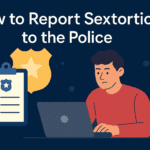
How to Report Sextortion to the Police: A Step-by-Step Guide
June 6, 2025The digital age has brought many benefits. But with it, new dangers have emerged.
The convenience of sharing photos, chatting with friends, and exploring online has changed our lives for the better.
However, this also means your personal information is increasingly vulnerable to digital predators.
Blackmail, scams, and identity theft have become more common than ever. And while no one is completely immune, there are proactive steps you can take to protect yourself online — and greatly reduce your chances of falling victim to blackmailers.
What is online blackmail?
Online blackmail occurs when someone threatens to release private, compromising information or images unless certain demands are met.
This could include:
Photos
Videos
Personal data
Or even private conversations
This type of extortion is increasingly prevalent in today’s interconnected world, with blackmailers using social media platforms, dating apps, and even email to find their victims.
The scariest part? Often, the blackmailer is part of a larger criminal network — and they may have more information than you realize.
Here’s how you can protect your privacy online:
Whether you’re using social media to keep in touch with family or looking for new opportunities online, privacy protection should always be a priority.
Use strong, unique passwords for every account
One of the easiest ways to avoid being targeted is to prevent hackers from accessing your accounts.
Don’t use the same password for multiple sites. Use a password manager to generate strong, random passwords. This makes it far more difficult for blackmailers to break into your accounts.Enable two-factor authentication (2FA)
Adding a second layer of security to your accounts — like requiring a fingerprint or a text message verification — helps prevent unauthorized access.
Even if someone guesses your password, 2FA keeps your information safe.Review your privacy settings regularly
Check your social media profiles and online accounts frequently to make sure you’re not unknowingly sharing personal information with strangers.
Most platforms allow you to set different levels of privacy — adjust these to keep sensitive content private.Be cautious about what you share online
Remember that everything you post on the internet is permanent. Even if you delete a photo, there’s a chance it’s been copied or saved.
Before posting, ask yourself: Could this content be used against me in the future?Be skeptical of unsolicited messages and links
Blackmailers often start by reaching out through social media or email with fake offers, threats, or links to "secure" sites.
Don’t click on unfamiliar links. If you receive a suspicious message, block and report the sender. Never respond to threats or blackmail demands.
What to do if your information has been compromised:
If you find yourself facing online blackmail, don’t panic.
Here are a few key steps to take immediately:
Document everything
Take screenshots or save any messages and threats sent to you. This information will be helpful if you decide to report the incident.Reach out to the platform
If the threat involves social media, email, or any platform with a user reporting system, contact the platform immediately.
They may be able to remove any content or help track down the blackmailer.Seek legal help
While some situations can be handled on your own, serious threats may require legal intervention.
Contact an attorney or a professional who specializes in online blackmail to understand your options.
Why online privacy is a never-ending process:
Privacy isn’t something you achieve once and forget.
New threats emerge constantly, and blackmailers are always adapting to find vulnerabilities.
That’s why it’s crucial to regularly update your security, review your online activity, and stay educated on emerging risks.
Staying safe online isn’t about creating a fortress — it’s about building a digital safety routine that becomes second nature.
Are you worried about your online privacy?
You’re not alone.
Many people have been where you are now, worried about what could happen if their private information fell into the wrong hands.
While there’s no way to make yourself completely immune to online threats, the steps you take today can make a huge difference in protecting your privacy tomorrow.
Remember, taking control of your online security is an ongoing journey — and with the right mindset, you’ll be able to safeguard your private life effectively.
Written by
A digital security expert at Blackmail Shield
We provide advice, awareness, and resources to help individuals protect their personal information online.

